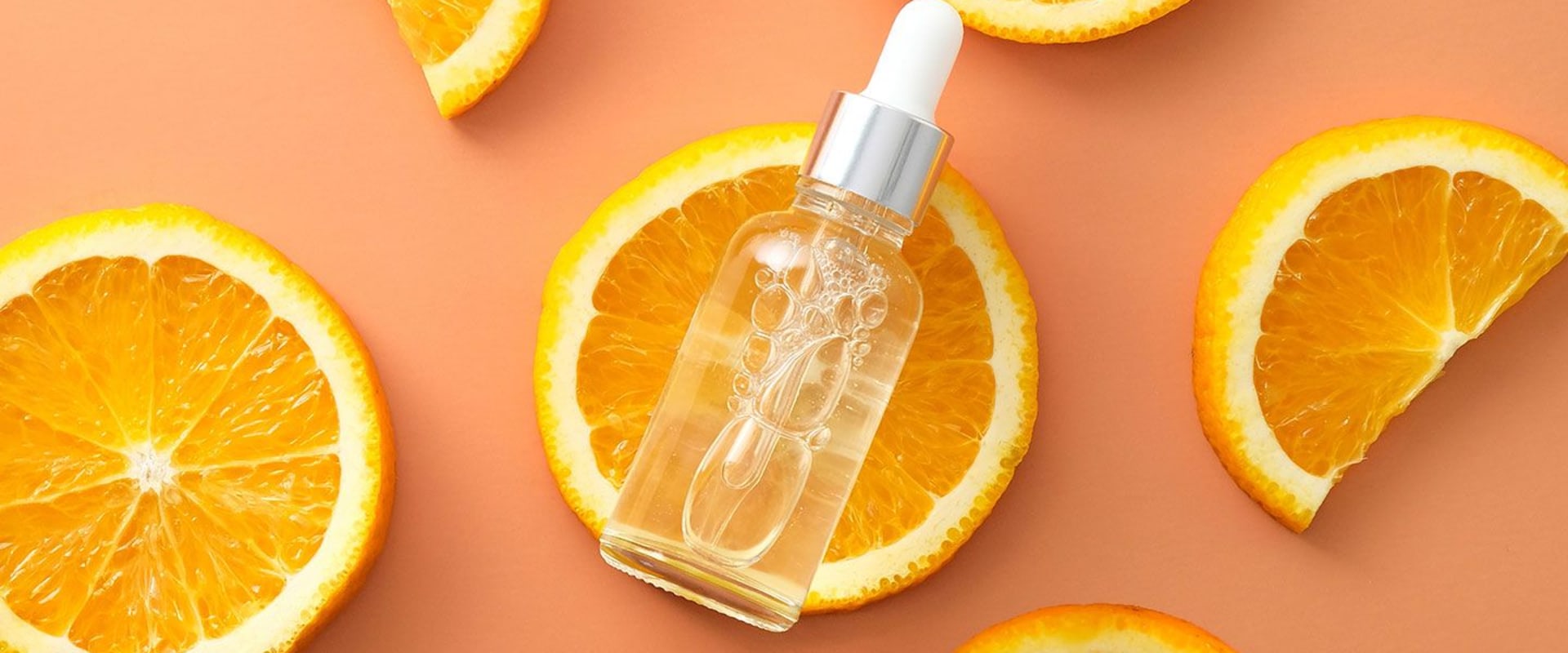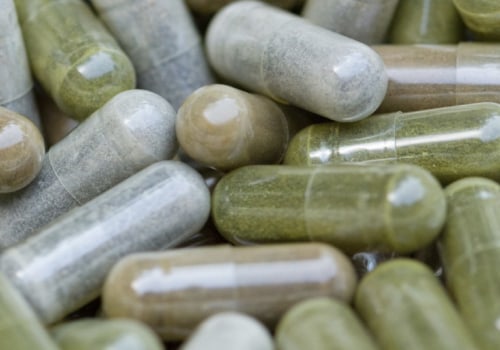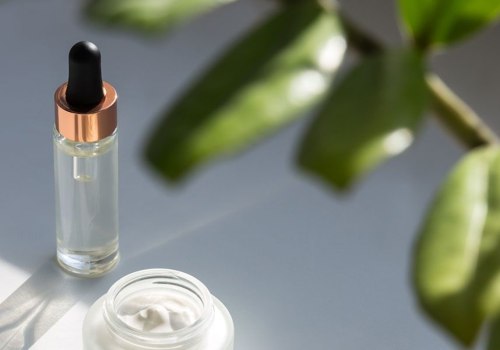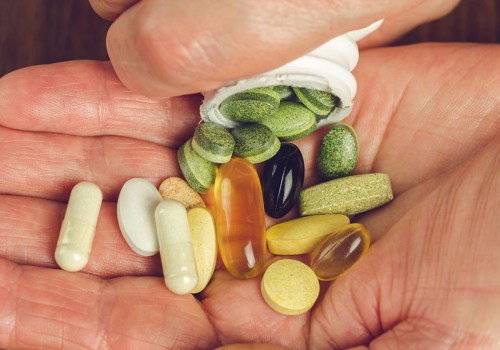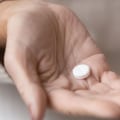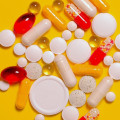This term is used for vitamin A compounds, such as retinol and retinoic acid. Studies have found that up to 80 percent of the visible signs of facial aging come from exposure to the sun, so a daily SPF is crucial for keeping skin healthy and looking younger in the future. Rossi recommends using physical sunscreens (also known as minerals), which contain zinc oxide or titanium dioxide. While retinoids are considered to be one of the most effective anti-aging ingredients we have available, retinoids, especially prescription retinoids, can also be extremely effective treatments for acne.
For an even more powerful vitamin C formula, look for vitamin C serums that are formulated with ferulic acid. Not only does the presence of ferulic acid help stabilize vitamin C formulas, it's also a powerful antioxidant in its own right. Ferulic acid works by neutralizing free radicals that corrode our existing collagen production, Gross says. This comes from UV damage, blue light damage, and so on.
Therefore, it helps preserve our existing collagen production and maintain a more youthful appearance. If you're looking for a more natural alternative to retinol, Gross recommends trying bakuchiol (it also works well with retinol as long as both ingredients are in the same formulation). One of my favorite ingredients to mix with retinol is bakuchiol, he says. It is a natural derivative of retinol that also stimulates cell renewal and increases the production of existing collagen in our skin.
However, the key to bakuchiol is that it strengthens the skin's moisture barrier at the same time, preventing possible irritation or moisture loss from occurring. Do you need to use sunscreen indoors? We Asked Dermatologists What Are the 9 Best Anti-Aging Ingredients, According to Dermatologists. Therefore, regular use of sunscreen will help prevent those problems. On its own, sunscreen won't reduce the wrinkles or dark spots you already have, but it will help prevent them from forming more, prevent them from being more noticeable due to sun exposure, and protect your skin while treating any other problems you have, such as acne.
Unlike many modern skincare ingredients, we have decades of information about different sunscreen ingredients and innovation in sunscreen formulas. Gone are the days of thick, pasty, and boring SPF. Today's sunscreens come in physical and chemical varieties (often containing a combination of both) and are absorbed into the skin leaving little or no white residue. If you're not sure where to start when buying sunscreen for your face, check out SELF's guide to sun protection here, or check out some of our editors' favorite moisturizers with SPF.
Along with sunscreen, retinoids such as retinol are the skincare ingredients that have the best real evidence of anti-aging benefits. All retinoids are naturally occurring forms of vitamin A. However, when you eat foods that contain vitamin A (such as milk, eggs, carrots, and broccoli), your body needs to convert those vitamin A preforms and provitamins into an active form that you can use. Retinol is the first step on that path.
Zampella, MD. Perelman, from the dermatology department at Langone Health at New York University, previously told SELF that topical retinoids (including retinol) cause the skin to accelerate its normal cell renewal process, meaning it will eliminate skin cells more quickly. That helps address problems such as fine lines, wrinkles, dark spots, and acne. Researchers also believe that retinol may help increase collagen production, which reduces signs of aging.
The other big advantage of using retinol is that it's basically everywhere. You can find retinol over the counter at pharmacies and in luxury products, so you don't need a prescription for this medication. However, since these products are regulated like cosmetics and not like medications, you can't necessarily be sure what you're getting. While research shows that retinol is effective, there's no way to guarantee that what you use in an over-the-counter product will be as potent or effective as retinol in those studies.
The other drawback of using retinol (or any retinoid, for that matter) is that these ingredients are known to cause irritation, at least when you first start using them. This usually includes symptoms such as dryness, itching, redness, and increased sensitivity. However, not everyone experiences these symptoms. If you're irritated by retinol, you can try products that contain retinal (also called retinaldehyde), which is another form of retinol, or bakuchiol, a newer ingredient that's often touted as a natural alternative to retinol.
Both appear to cause less irritation than retinol. Retinol is eventually converted to retinoic acid in the body, Dr. Zampella told SELF, so it's probably not surprising that some of the most potent prescription acne medications we have, such as tretinoin (Retin-A) and isotretinoin (formerly Accutane, which are taken orally), are forms of retinoic acid. What's more, the way these drugs work by boosting the cell renewal process also makes them great anti-aging ingredients.
And since they're usually only available with a prescription, you know exactly what you're getting. However, because these medications are more potent than over-the-counter options, they can also cause more intense side effects, such as dryness, peeling, itching, and tenderness. When using a retinoid like these, it is very important to moisturize it effectively and, as always, to use sunscreen. In addition to retinol, retinal, and retinoic acid, there are some synthetic retinoids, such as adapalene and tazarotene, which some research suggests are less irritating than tretinoin and isotretinoin.
One of the most common active ingredients in skin care products today, vitamin C acts as an antioxidant to counteract and protect against free radical damage, Shari Lipner, M, D. In addition, it can also be used to effectively illuminate dark spots over time. But it can also be a surprisingly difficult ingredient to use properly. It's sensitive to light, for example, so it's important to buy only products with vitamin C that are in opaque, airless packaging that protects it from degradation.
And it also comes in varying concentrations (between 5% and 20%), which means that effects and side effects, such as irritation, can vary a lot from product to product. This increasingly popular skincare ingredient is a form of vitamin B3 that has shown promise for fighting free radical damage, lightening dark spots, and controlling acne. And people with sensitive skin will be pleased to know that some research shows that it can brighten the skin with fewer side effects or irritation than other first-line treatments, such as hydroquinone. While your dermatologist can't prescribe a niacinamide product on its own, this ingredient can be combined in many other topical recipes, Laura Ferris, M, D.
And there are also more and more OTC options for niacinamide. Glycolic acid is especially useful for reducing signs of aging, such as hyperpigmentation, fine lines, and wrinkles. But keep in mind that its effects vary depending on the concentration of glycolic acid in the product you're using. Milder over-the-counter products, such as tonics, for example, generally contain around 5% to 7% glycolic acid and peak at around 10%.
They can be used several times a week. However, peels contain more than 20% glycolic acid (up to 70% for deep in-office treatments). Products with such high concentrations should not be used as often as products with lower concentration, and many are only available in a dermatologist's office. Do you have fine lines? Science shows that anti-aging ingredients such as retinol, hyaluronic acid and glycolic acid can help the appearance of wrinkles.
Coenzyme Q10 deficiency can result in the inability to produce collagen and elastin properly, two of the main building blocks of healthy skin. Unfortunately, most people over 30 are deficient if they don't take a supplement with the enzyme. There are two main groups of agents that can be used as components of anti-aging creams, antioxidants and cellular regulators. Antioxidants, such as vitamins, polyphenols, and flavonoids, reduce collagen degradation by reducing the concentration of FR in tissues.
Cellular regulators, such as retinols, peptides, and growth factors (GFs), have direct effects on collagen metabolism and influence collagen production. The paradigm of “successful aging”, which focuses on health and active participation in life, counteracts traditional conceptualizations of aging as a time of illness and is increasingly equated with minimizing signs of aging on the skin, face and body. .
